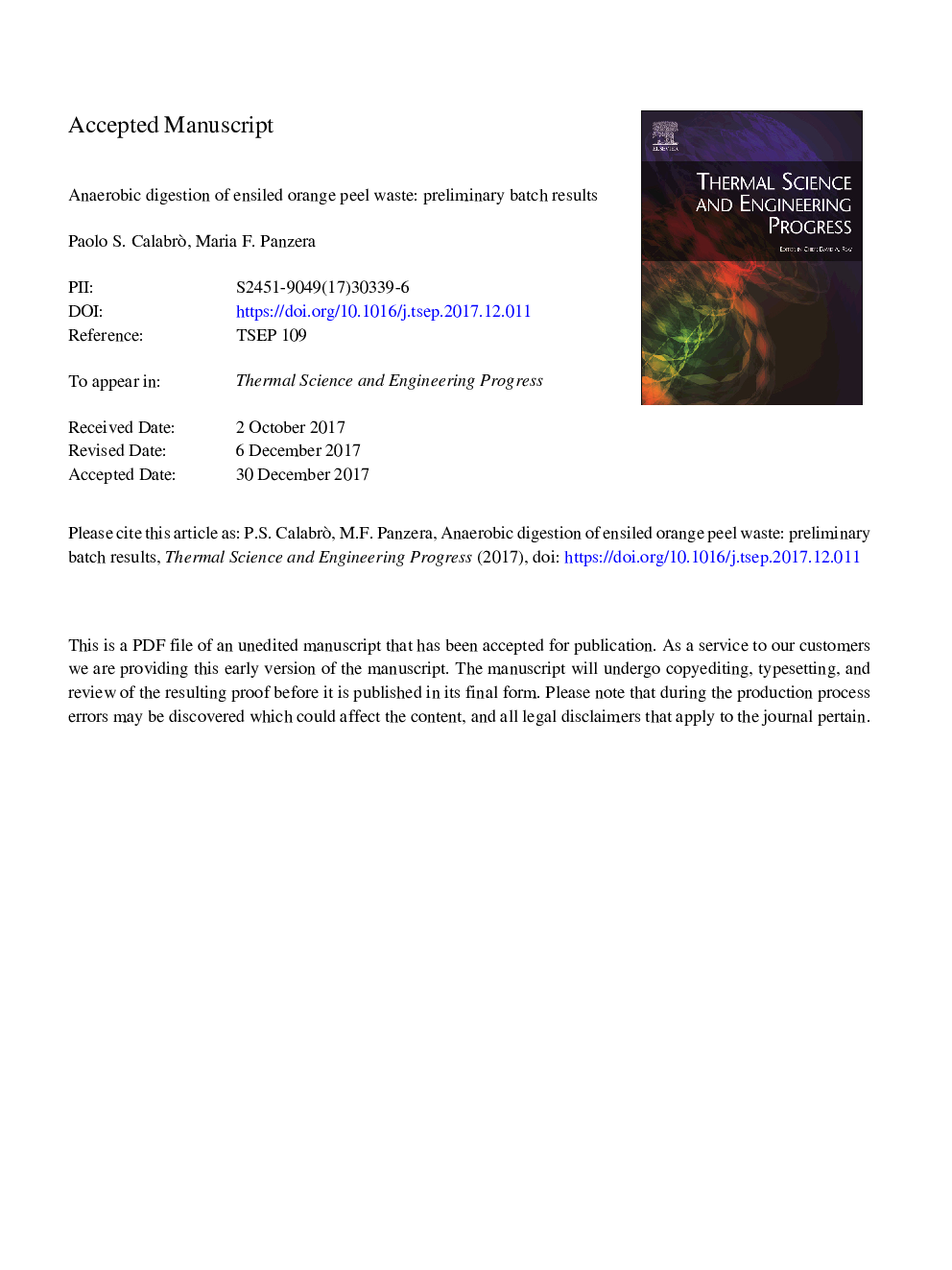| Article ID | Journal | Published Year | Pages | File Type |
|---|---|---|---|---|
| 8918697 | Thermal Science and Engineering Progress | 2018 | 11 Pages |
Abstract
According to the official data, oranges are one of the most cultivated fruit in the world and the major part of them are used in industrial processes to produce juices, jams and other products. From these processes, huge amounts of residues are produced and among them the most abundant is orange peel waste (OPW). One promising option in the management of OPW is represented by anaerobic digestion for methane production. The aim of this paper is to analyse the effects of ensiling (a form of storage used to overcome the problem of OPW seasonal production) on bio-methane production, also evaluating the influence of bacteria adaptation to the substrate at lab scale. Two sets of batch experiments were carried out, the first evaluated the methane potential of OPW ensiled up to 37â¯days. The highest production was registered for samples of OPW ensiled for 37â¯days, with a value of 365â¯Nml CH4/gâ¯VS. The second set of batch test was aimed at verifying the effect of the adaptation of the inoculum. OPW ensiled for 7â¯days inoculated with sludge already adapted to the substrate yielded 513.7â¯Nmlâ¯CH4/gâ¯VS versus 187.2â¯Nmlâ¯CH4/gâ¯VS of the corresponding test using non adapted inoculum.
Related Topics
Physical Sciences and Engineering
Energy
Energy Engineering and Power Technology
Authors
Paolo S. Calabrò, Maria F. Panzera,
